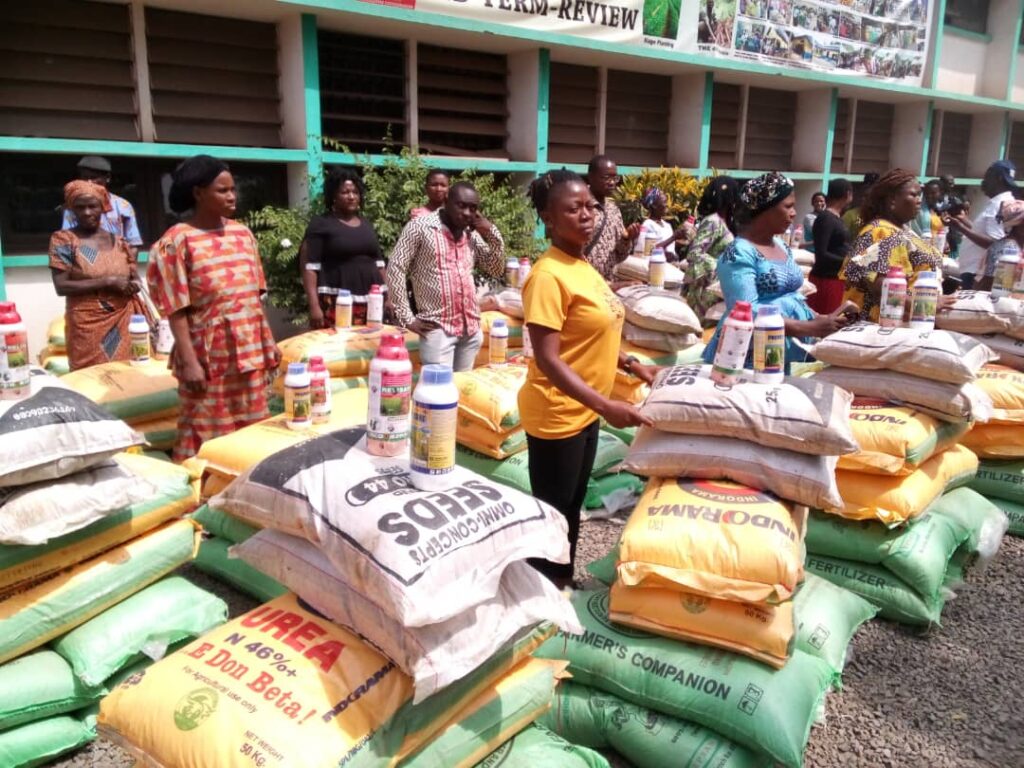Ben Ezechime, Enugu
The International Fund for Agricultural Development (IFAD) has embarked on regional consultation on the redesign of a new Country Strategic Opportunities Programme (COSOP) in South-East to boost food.
COSOP is also part of IFAD efforts to provide rural farmers from the zone better support to enhance food security, reduce poverty and generate wealth.
The participating states in the workshop which held in Enugu were Anambra, Ebonyi, and Enugu.
In his opening remarks, Dr Edward Isiwu, the State Programme Coordinator, Enugu State Value Chain Development Programme (VCDP), said the IFAD wanted to use the gathering to strategise the process of collating ideas on inputs of key consultants and stakeholders especially the farmers on improving agricultural system in South-East region.
Corroborating what Isiwu said, the Commissioner for Agriculture and Natural Resources, Enugu State, Dr Matthew Idu, emphasised the importance of ideas collation from the stakeholders towards improving food system in the zone.
He said, ”The importance of this workshop is focused on getting ideas on building a road map, strategies towards developing the key objectives and development results to be pursued within the time frame.
He also appreciated IFAD for organising the workshop which he said would help to support the region on agricultural development in the next five years.
Speaking also, Nkiruka Okonkwo, the IFAD Country Consultant, further explained that the workshop was geared towards looking at the current COSOP and to commence the preparation for the new COSOP.
According to her, the workshop will provide opportunity for the stakeholders to highlight their priorities on improving agricultural system in the region.
She highlighted the strategic objectives for the workshop to include identifying key strategies and entry points for mainstreaming gender and youth, nutrition, environment and actions against climate change.
Others include financial and people with disabilities into the new COSOP beginning from 2024 – 2029 at states and regional levels as well as identifying innovations, ICT4Development, and key successes for addressing identified needs and scaling up the implementation of priorities.
“It will be used also to identify challenges, fragility issues (for instance, security), gaps, opportunities and best practices for promoting agriculture and food systems transformation at states and regional levels,” she added.
In response to the achievements of VCDP in the three states of intervention, Dr Ben Ezema, Permanent Secretary, Ministry of Finance Enugu State, applauded VCDP achievements so far.
He stressed that IFAD should try to expand the intervention to other council areas that had potentials for producing rice and cassava in the region as well as other cash crops grown in the area such as oil palm, grains and legumes.
Mrs Patricia Okiri, PS, MANR Ebonyi State in her comments expressed great appreciation stressing that IFAD had made tremendous achievements in Ebonyi State.
She also emphasised that there was need to include yam and potatoes as part of the crops to be promoted in the region.
Mr Sunday Itumba the state Programme Coordinator (SPC) Value Chain Development Programme Ebonyi State, made some pertinent contributions especially on how best to improve agricultural sector in Ebonyi and the region at large through COSOP redesign.
“A double production of rice and cassava value chain which will be achieved through increased funding of agricultural sector, development of more hectares of land for rural households, collaboration with research institutes and provision of irrigation infrastructure,” he said.
In the same vein, Mr Nnamdi Emmanuel Aguncha, the State Programme Coordinator VCDP Anambra State, pointed out that there were sacrosanct needs for digitalisation of agriculture which would also encourage youths and women participation.
This, he said, would promote dry season farming especially at the location close to the rivers.
“There is urgent need to promote and support dry season rice farming to help farmers to plant and harvest before flood may occur,” Nnamdi said.

